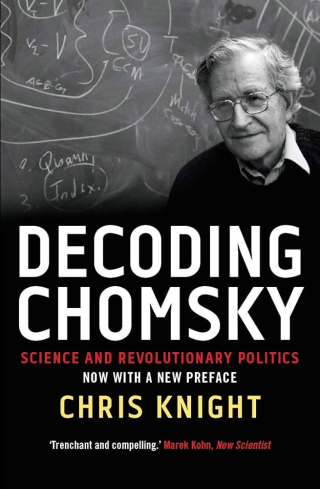I took it for granted that the ideas people entertain are likely to be shaped by the kind of life they lead. In other words, I assumed that Chomsky’s linguistic theories must have been influenced by the fact that he developed them while working for the US military – an institution he openly despised.
This was Chomsky’s impossible dilemma. Somehow, he needed to ensure: a) that the research he was conducting for the US military did not interfere with his conscience; and b) that he could criticise the US military without inducing them to cease funding his research. His solution was to make sure that the two Noam Chomskys – one working for the US military and the other against it – shared no common ground.
He achieved this through a bold stroke of amputation. From the start of his academic career, no part of his scientific work would show up in his political activism, while no trace of his activism would be detectable in his science. Among the inevitable outcomes was a conception of language utterly divorced from what most of us mean by that term.
Language, for Chomsky, is a computational module restricted entirely to the individual, and devoid of communicative, cultural or social aspects. If it has any remaining purpose or function, it exists merely for talking to oneself. This novel and allegedly ‘scientific’ model of language was so extreme in its individualism and abstraction that, in the end, it proved of no use to anyone. Not even the US military could make any of it work.
Decoding Chomsky triggered a heated debate. Although reviewers were largely positive, Chomsky’s own response was that the ‘whole story is a wreck … complete nonsense throughout’. In a letter to the London Review of Books in 2017, he said that for anyone to suggest that the Pentagon once viewed his linguistics as important for future forms of war was too absurd to require comment. In 2019, in a considerably longer polemic, he accused me of continuing to spin a ‘web of deceit and misinformation’.
More recently, in an online interview with the physicist Lawrence Krauss in 2022, Chomsky suggested that those of us who raise the issue of his work for the Pentagon are just accusing him of ‘working for the war machine’. I concede that if that were my book’s message, Chomsky’s hostility would be easy to understand. But, in fact, I am saying something quite different.
